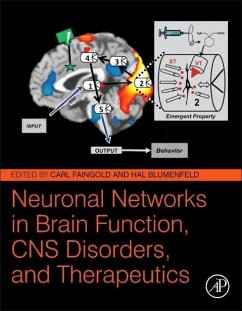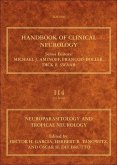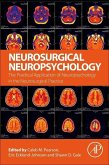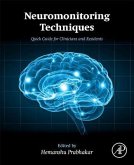Offers a review of what we know about neural networks. This book advances the understanding of: how the brain carries out important tasks via networks; how these networks interact in normal brain function; major mechanisms that control network function; and the interaction of the normal networks to produce more complex behaviors.
Hinweis: Dieser Artikel kann nur an eine deutsche Lieferadresse ausgeliefert werden.
Hinweis: Dieser Artikel kann nur an eine deutsche Lieferadresse ausgeliefert werden.
"The book is a welcome and scholarly recognition of the growing importance of networks in neuroscience and neurological care." "Students and practitioners of Neuroscience, Neurology, Psychiatry, Pharmacology and Information Science as applied to the brain will find this to be a useful summary of systems data and a new conceptual framework." --Robert S. Fisher, MD, PhD, Professor of Neurology and Director, Comprehensive Epilepsy Center, Department of Neurology and Neurological Sciences, Stanford University Medical Center
"This volume, edited by Carl Faingold and Hal Blumenfeld, focuses on neural networks - what they are, how we study them, and why they are important for understanding normal brain function and treating neuropathologies. The topic is timely and important. Indeed, there is a wealth of information (and a large number of ongoing studies) that deals with the identification and understanding of brain networks, and this volume attempts to bring much of that information together in a coherent package. Of particular importance is the concept of "emergent properties" of a network - characteristics of a network's function that are not observed in the member elements and may not be predictable simply by looking at the members of the network.research on network modulation/disruption will contribute powerful new tools to our therapeutic armamentarium." --Philip A. Schwartzkroin, Ph.D., Professor emeritus, Department of Neurological Surgery University of California, Davis
"Many of the chapters provide outstanding thoughtful, timely, and information-packed reviews of interesting topics.this book will be useful and important to anyone interested in mammalian systems neurobiology, and especially to those to whom basic science/clinical implications matter deeply." --Roger D. Traub, M.D., Dept. Physical Sciences, IBM T.J. Watson Research Center, Yorktown Heights, NY
"This volume, edited by Carl Faingold and Hal Blumenfeld, focuses on neural networks - what they are, how we study them, and why they are important for understanding normal brain function and treating neuropathologies. The topic is timely and important. Indeed, there is a wealth of information (and a large number of ongoing studies) that deals with the identification and understanding of brain networks, and this volume attempts to bring much of that information together in a coherent package. Of particular importance is the concept of "emergent properties" of a network - characteristics of a network's function that are not observed in the member elements and may not be predictable simply by looking at the members of the network.research on network modulation/disruption will contribute powerful new tools to our therapeutic armamentarium." --Philip A. Schwartzkroin, Ph.D., Professor emeritus, Department of Neurological Surgery University of California, Davis
"Many of the chapters provide outstanding thoughtful, timely, and information-packed reviews of interesting topics.this book will be useful and important to anyone interested in mammalian systems neurobiology, and especially to those to whom basic science/clinical implications matter deeply." --Roger D. Traub, M.D., Dept. Physical Sciences, IBM T.J. Watson Research Center, Yorktown Heights, NY








